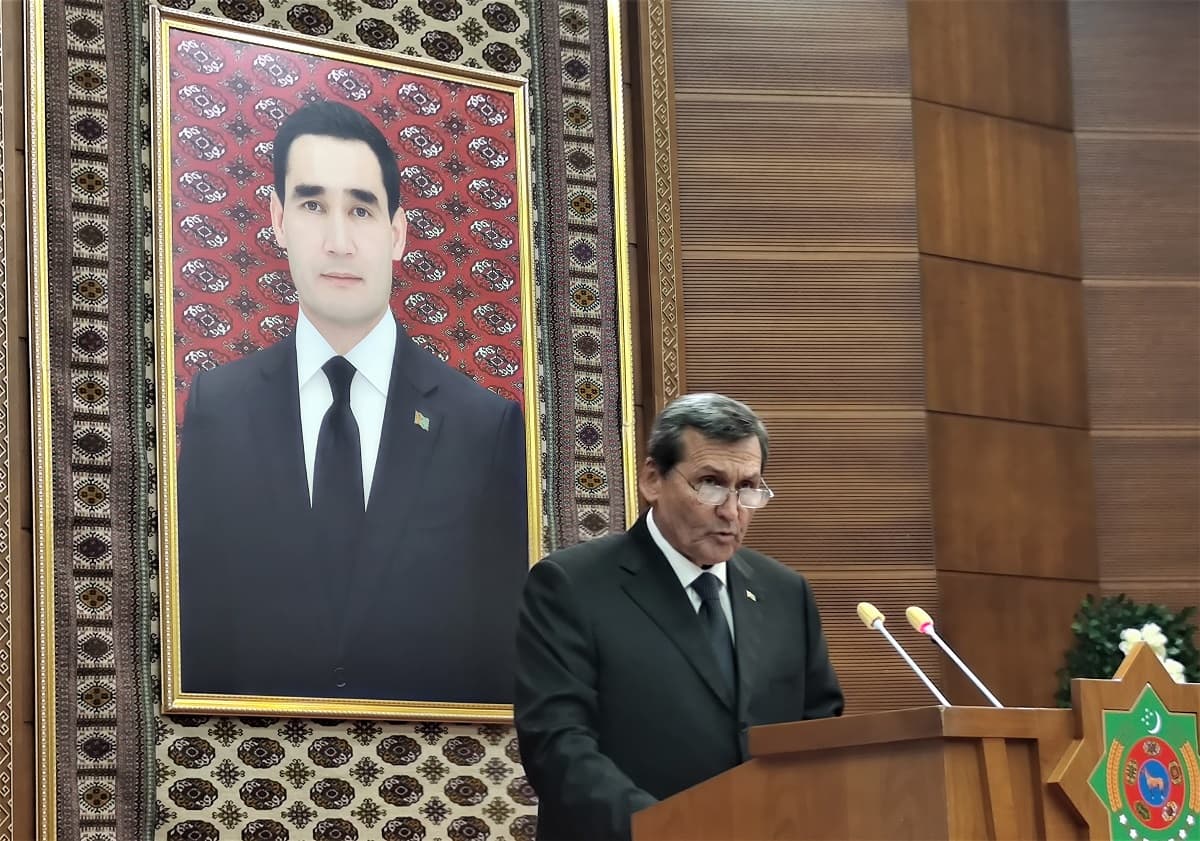Ashgabat, September 30 | ORIENT. The Institute of International Relations of the Ministry of Foreign Affairs of Turkmenistan hosted a conference, "International Cooperation: Guaranteeing Strengthening Peace and Sustainable Development." The event focused on the broad promotion of Turkmenistan's priorities at the 80th session of the United Nations General Assembly.
The conference, opened and moderated by the Institute's Rector, Gulshat Yusupova, brought together a distinguished diplomatic delegation, emphasizing Ashgabat's systemic approach to the global agenda. Participants focused on the most pressing issues related to further enhancing cooperation potential for strengthening peace and security, implementing the long-term UN program on the Sustainable Development Goals, and enhancing the role and effectiveness of international law.
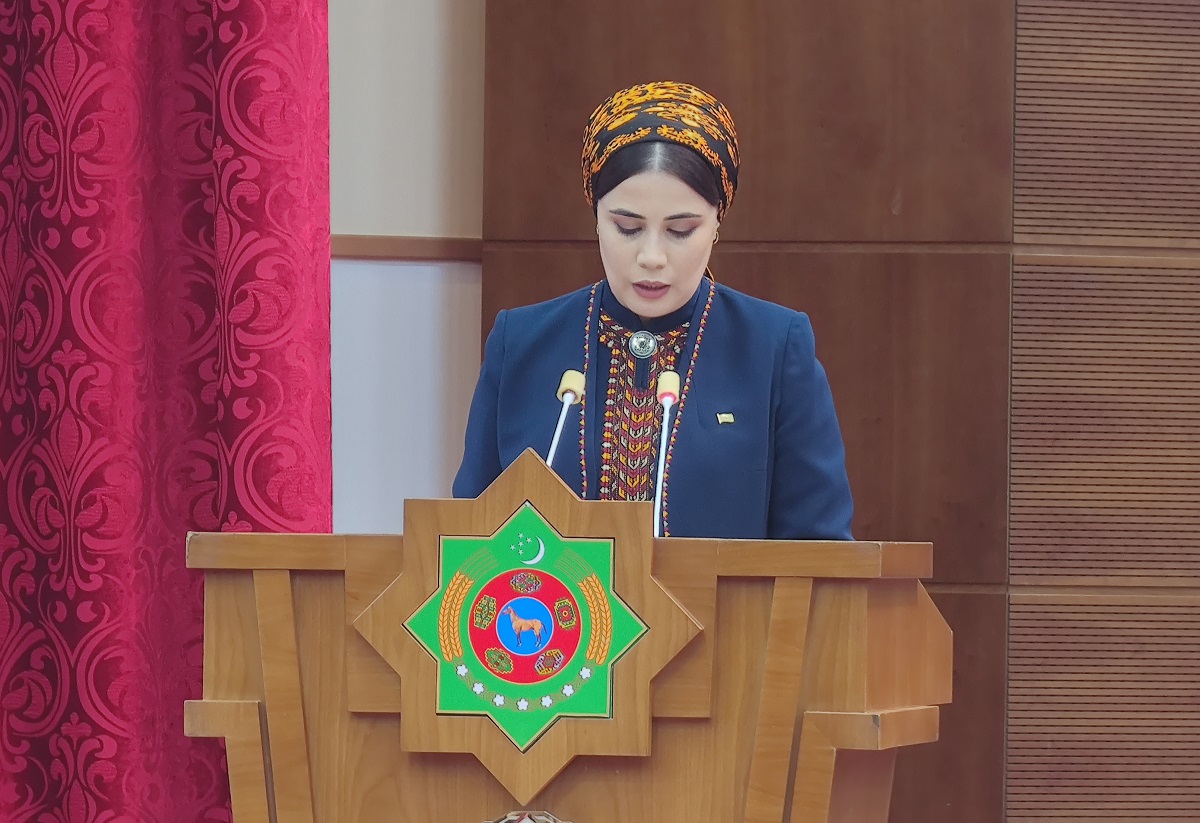
Deputy Chairman of the Cabinet of Ministers and Minister of Foreign Affairs Rashid Meredov delivered a detailed report, presenting a detailed analysis of Turkmenistan's foreign policy positions and the proposals put forward in President Serdar Berdimuhamedov's political statement at the 80th session of the UN General Assembly on September 23, 2025.
The minister expressed hope that their practical implementation will be among the responsibilities of the Community of Nations, international organizations, financial institutions, and civil society associations and unions. However, UN member states must undoubtedly play the primary role in this matter, Meredov emphasized, noting that the opinions and proposals of the participants of the current conference, which aims to facilitate a more complete understanding of Turkmenistan's priorities, "are always important to us and are taken into account when formulating our country's foreign policy."
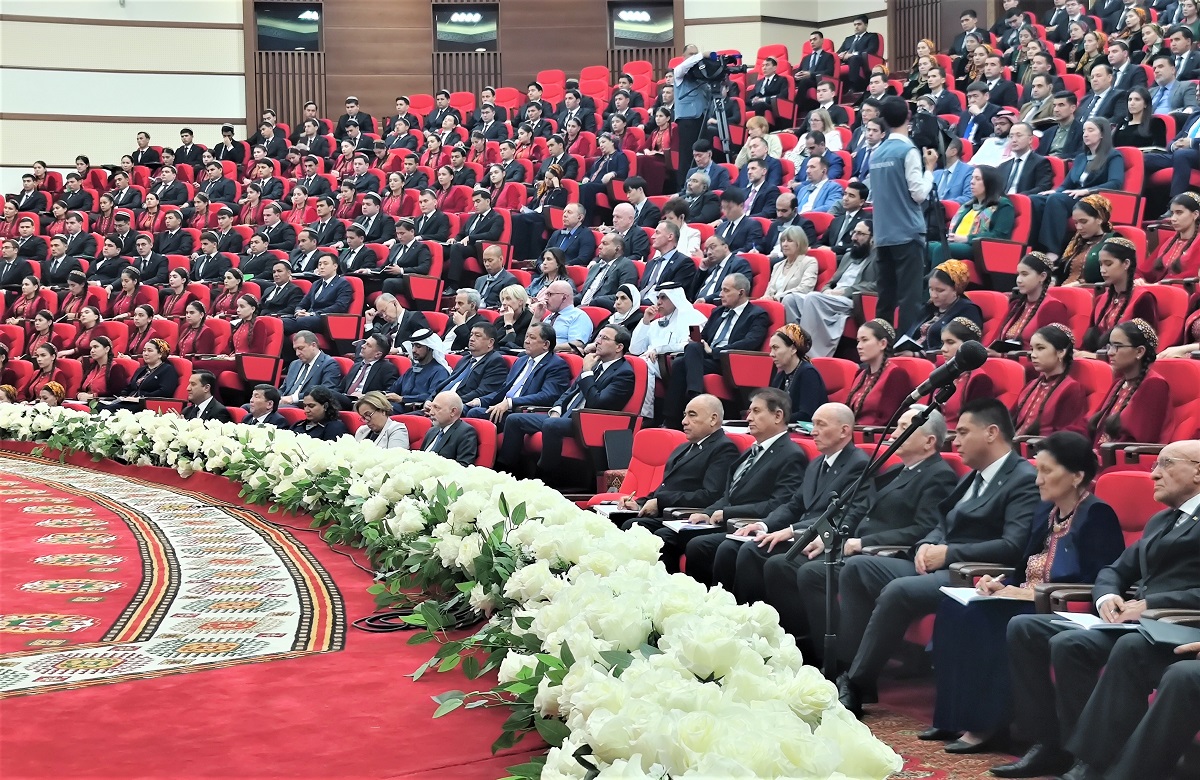
Diplomatic Vectors and Priority Initiatives at the UN Platform
Turkmenistan fully recognizes its share of responsibility for the current and future state of affairs at the UN and recognizes that the time has truly come for a serious and objective assessment of its past path and the determination of the parameters for the future, the Foreign Minister continued.
It is clear that the UN needs to be renewed, improved, and its institutions made more effective. This complex task will require the combined efforts of all states and their active and direct participation in the implementation of global strategies and programs in various areas. Only with such a consolidated approach can success be achieved and the United Nations truly gain its natural and undisputed leadership in global affairs.
The statement of the President of Turkmenistan in New York clearly articulated our country's position: The United Nations must remain the only international structure with universal legitimacy and mandate. All steps, approaches, and proposals for its reform must be aimed at enhancing the UN's authority and strengthening its central role in global affairs. There is no other way if we want to preserve and strengthen the architecture of peace, security, and civilized interstate relations, even despite the obvious fact that this system is currently facing difficult challenges.
In this context, Turkmenistan supports the "Future Pact." Its adoption at the Future Summit convened last September on the initiative of the UN Secretary-General was a significant and timely step. Turkmenistan views this document as a realistic, responsible, and timely action plan designed for the long term, Meredov said.
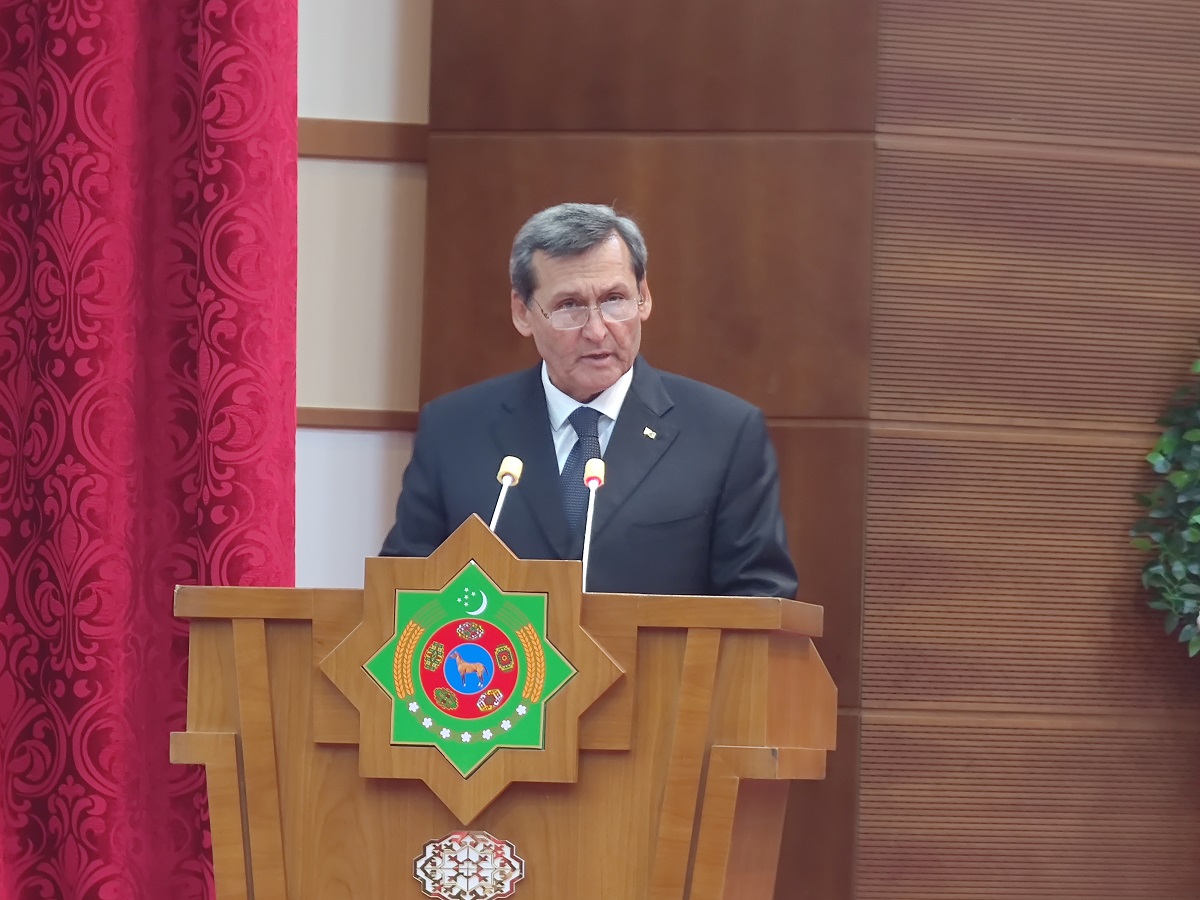
The "Future Pact" reflects five key areas of international cooperation: peace and security; sustainable development; climate change; digital technologies; and human rights and social justice. This list objectively encompasses the main trends in global development that will shape the current and future world order. In this regard, the minister noted a crucial and revealing fact: Turkmenistan's Priority Positions presented at the current General Assembly session essentially reflect the ideological and practical tenets and principles of the "Future Pact."
This is entirely logical, since Turkmenistan, having declared the strategic and priority nature of its partnership with the United Nations, inextricably links and aligns its entire system of international relations and foreign policy objectives with the activities of the UN.
In the context of the fundamental provisions of President Serdar Berdimuhamedov's report to the 80th session of the General Assembly, the Minister noted Turkmenistan's approaches to implementing the key areas of international cooperation outlined in the "Future Pact."
In the area of peace and security, our country adheres to the principle of the indivisibility and integrity of the concept of security, the continuity and interconnectedness of its components—political, economic, humanitarian, environmental, food, and other types of security. None of these elements can be considered secondary, and their resolution postponed.
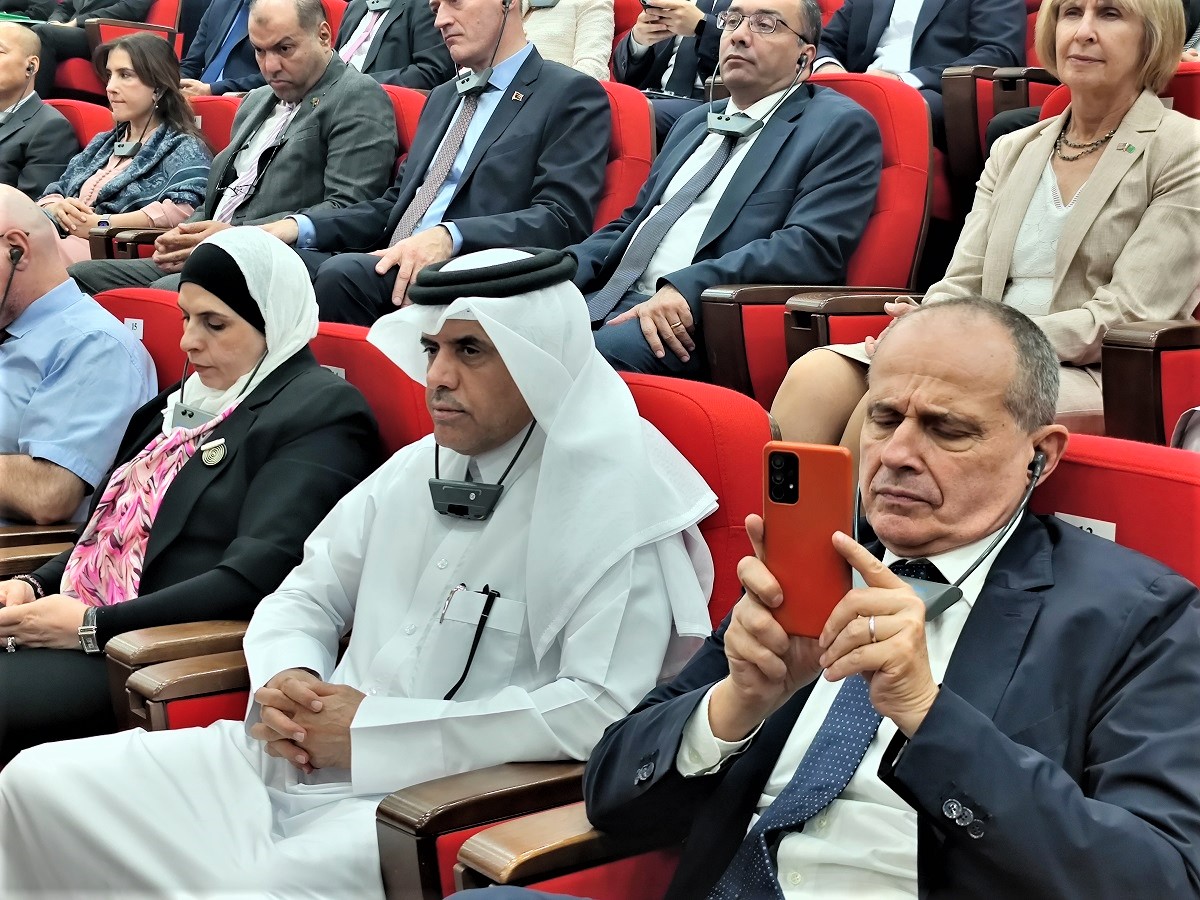
In a geopolitical context, Turkmenistan is convinced that ensuring strong and long-term national security cannot be considered in isolation from regional and global efforts in this direction. "Peace at home is peace among your neighbors"—this simple and true truth will never lose its relevance.
Taking a responsible approach to its obligations as a neutral country, Turkmenistan actively and constructively participates in regional and global engagement formats on various security issues, making practical contributions. For example, Turkmenistan was the first country to adopt the Regional Action Plan for the Implementation of the UN Global Counter-Terrorism Program.
Today, three aspects of ensuring and strengthening security are particularly relevant: harnessing the potential of neutrality, applying preventive diplomacy tools, and restoring a culture of respectful political dialogue. Recognition and support for this approach is demonstrated by the inclusion of a separate agenda item "Neutrality for Peace and Security," for the first time on the 80th session of the UN General Assembly, on Turkmenistan's initiative.
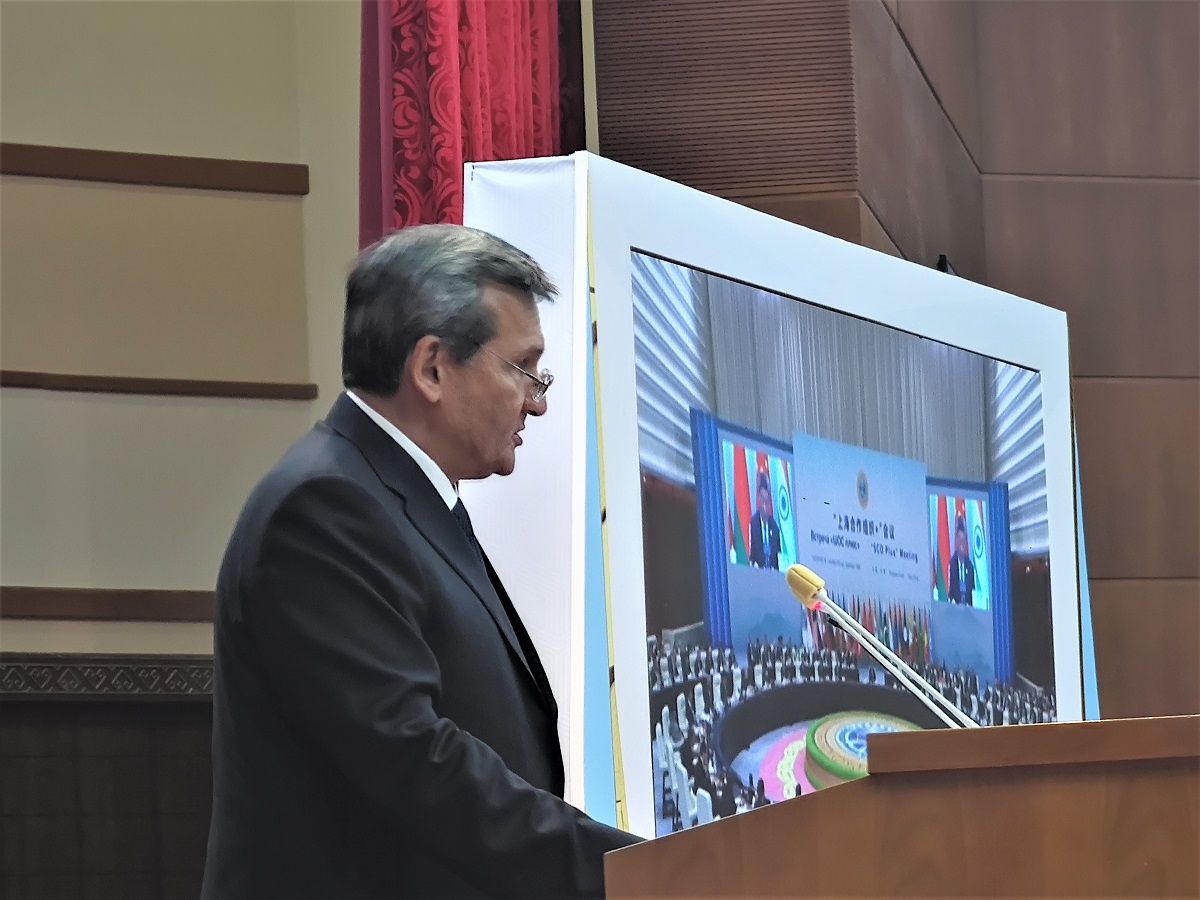
This opens up new opportunities for the full practical use of neutrality, its political and legal foundations, as an important factor in UN activities on peace and security at both the regional and global levels, Rashid Meredov said.
The Minister also noted that Turkmenistan was one of the first countries to begin implementing the global UN 2030 Agenda in January 2016, actively working to achieve the Sustainable Development Goals at the national level. Turkmenistan submitted its Voluntary National Reviews on the SDGs to the UN in 2019 and 2023. The third review is planned for 2027.
Ten years have passed since the adoption of the 2030 Agenda. Clearly, the time has come to intensify and adapt multilateral cooperation on the SDGs to current realities. Meredov noted that this work requires a much greater focus on the legitimate interests of developing countries.
Here, Turkmenistan also demonstrates a responsible and effective approach. This was confirmed by the Third UN Conference on Landlocked Developing Countries (LLDCs) held in our country in August of this year. Following its outcome, a political document, the Avaza Declaration, was adopted, and the Avaza Action Program, designed for the next 10 years, was launched.
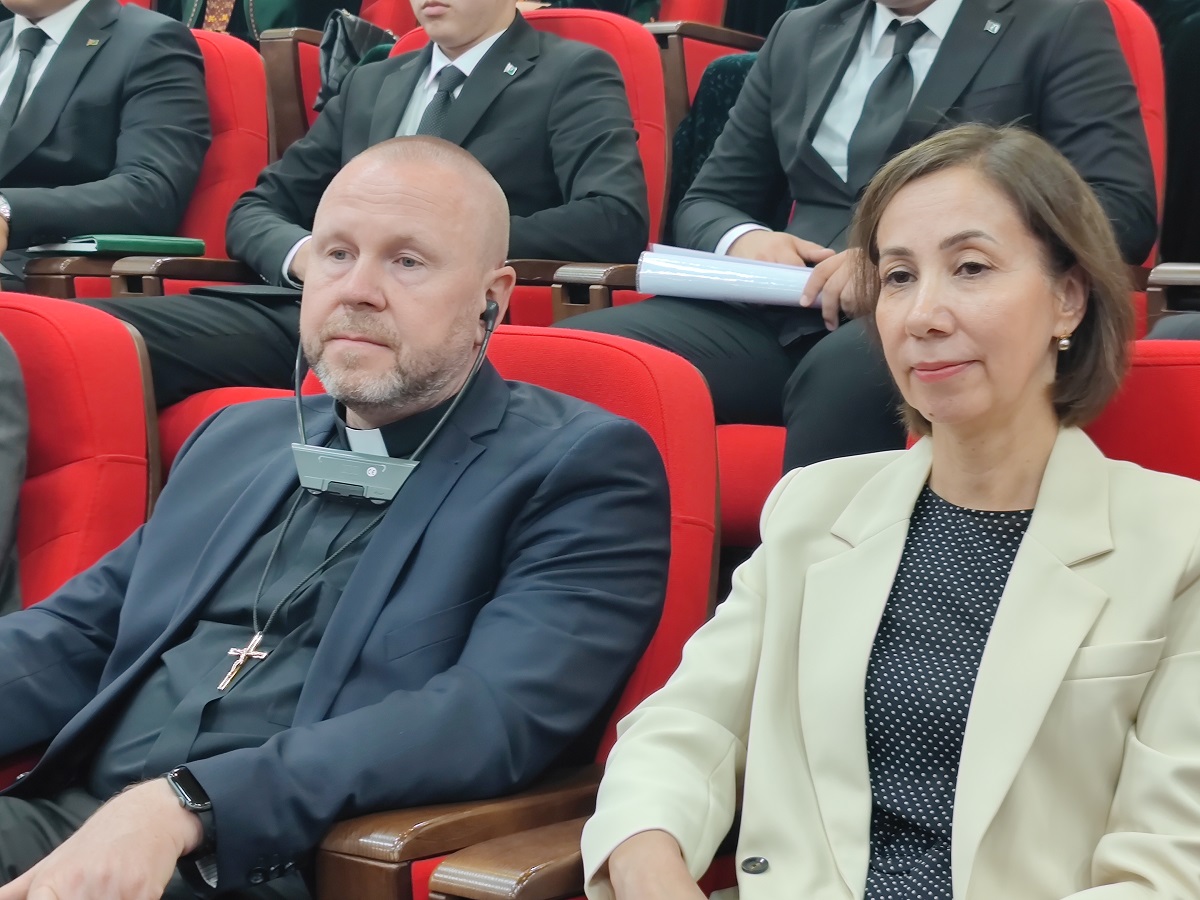
Full protection of the interests of the developing world is closely linked to digital transformation. In this regard, as stated in our priority positions, Turkmenistan intends to initiate the creation of a Global Platform for Digital Integration under the auspices of the UN, based on the principles of equality and trust.
Turkmenistan prioritizes strengthening international law as a key area of international cooperation. "Today, as we witness complex and contradictory processes on the global stage, the role of international law is becoming crucial. “This is not simply a system of international legal acts, but a holistic, developed and experientially grounded model of relations between states, an ideological and ethical basis for their coexistence and interaction,” Rashid Meredov said.
Turkmenistan has proposed declaring 2028 the Year of International Law at the UN and intends to actively promote the adoption of the relevant decision by the General Assembly. The Year of International Law will not only draw attention to this pressing issue but also serve as a new starting point for cooperation among states, a symbol of their commitment to upholding the principles and norms of the UN Charter, the Foreign Minister expressed confidence.
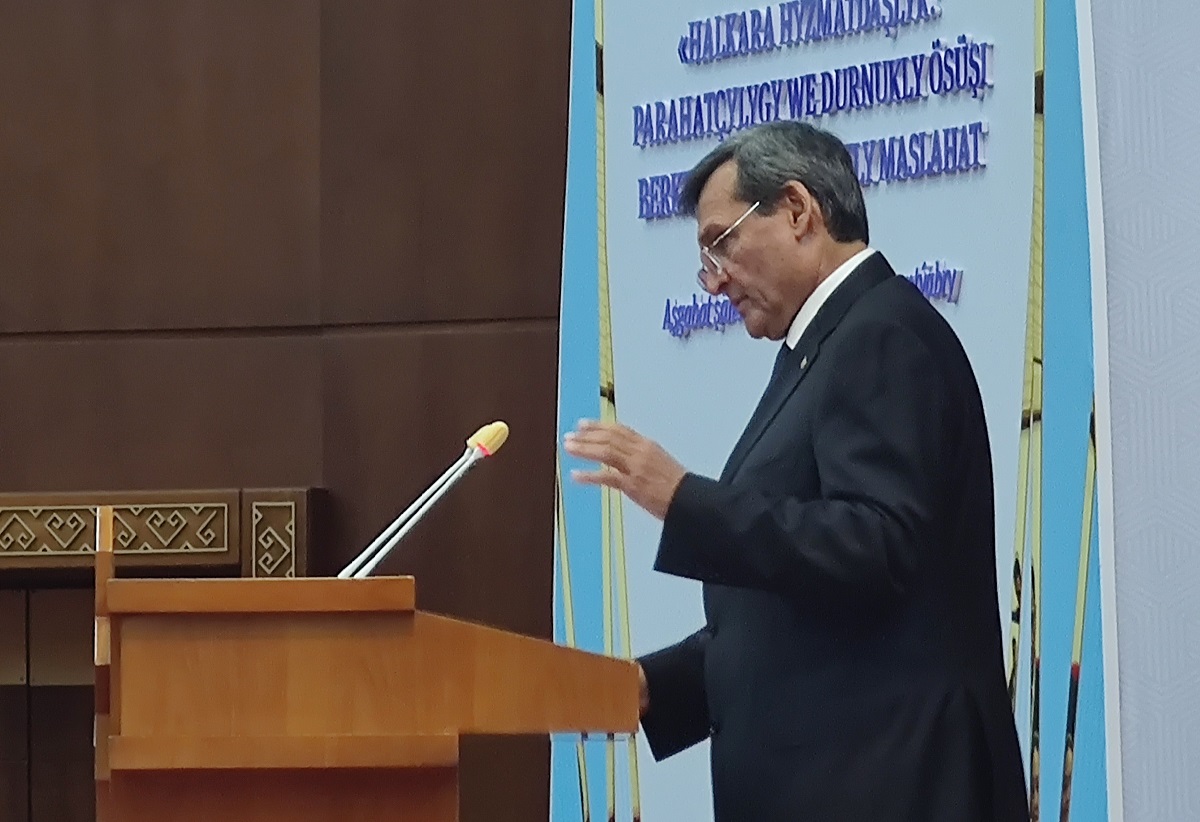
He then drew the attention of the meeting participants to the topic of UN reform, which has sparked numerous discussions, sometimes sparking clashes between different viewpoints and visions for the creation of new mechanisms for multilateral cooperation.
Turkmenistan has its own positions in this regard, including on strengthening the work of the General Assembly, reforming the Security Council, creating specialized structures, particularly regional ones, with various focuses, and aligning their activities with specific results. "Our approach is based on the need to introduce changes that will lead to a constructive renewal of the United Nations," the Minister noted. At the same time, the universal, pan-human, and civilizational mission of the UN must remain steadfast.
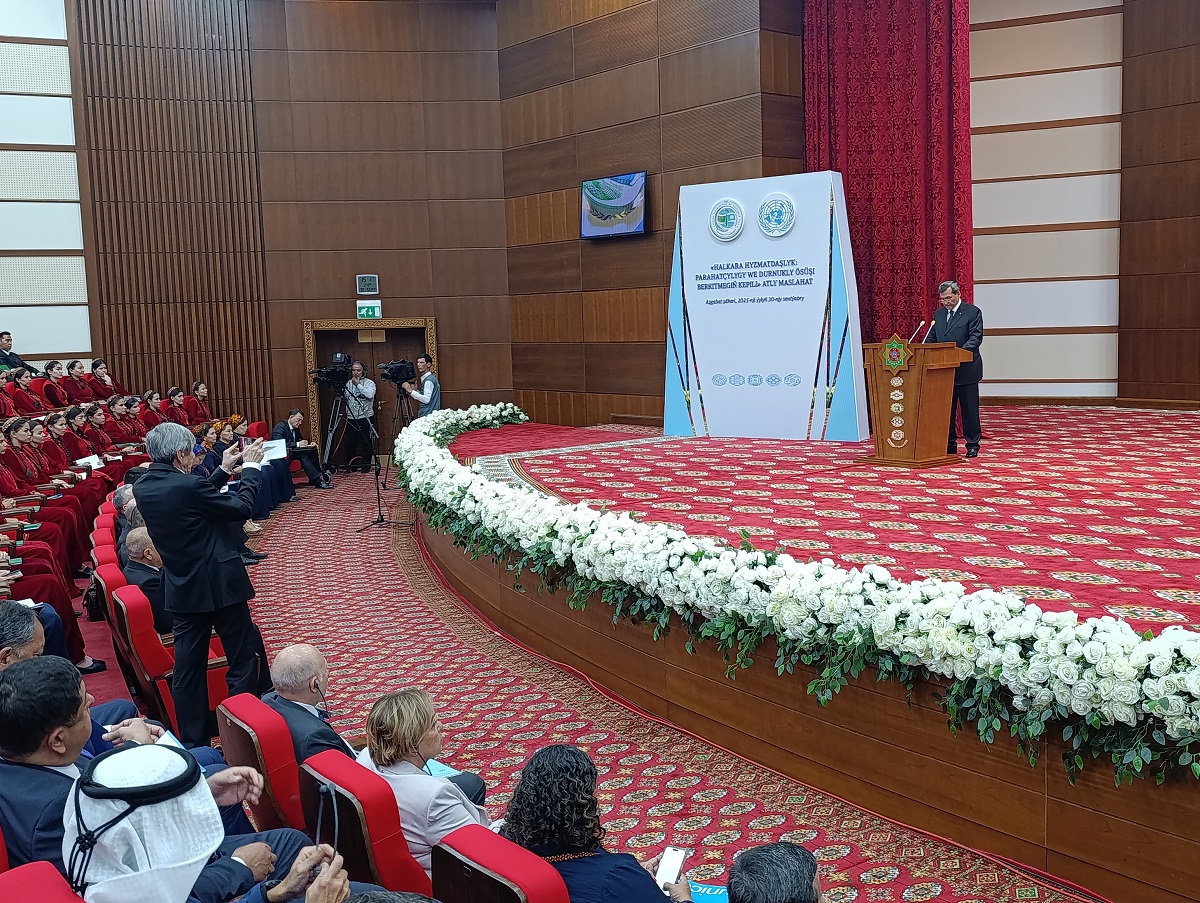
In this context, Turkmenistan is confident that the Secretary-General's "UN 80" initiative meets these goals and parameters and will contribute to their implementation. During his meeting with António Guterres in New York, the President of Turkmenistan reaffirmed his support for this concept, noting its relevance and viability. Turkmenistan is ready to provide maximum assistance to this project, Meredov emphasized.
Concluding his speech, he emphasized that the visit of the President of Turkmenistan to New York to participate in the 80th session of the UN General Assembly, his speech at the meeting, and meetings with the Secretary-General and several heads of state once again demonstrated our country's openness to the world and its readiness for effective international partnership as a key factor in strengthening peace and sustainable development on the planet.
The UN System Expresses Support for Turkmenistan's Initiatives
Following the Foreign Minister, key representatives of the UN system spoke. Kakha Imnadze, Head of the UN Regional Centre for Preventive Diplomacy for Central Asia (UNRCCA), emphasized that the United Nations, despite criticism and difficulties, remains a universal and indispensable platform.
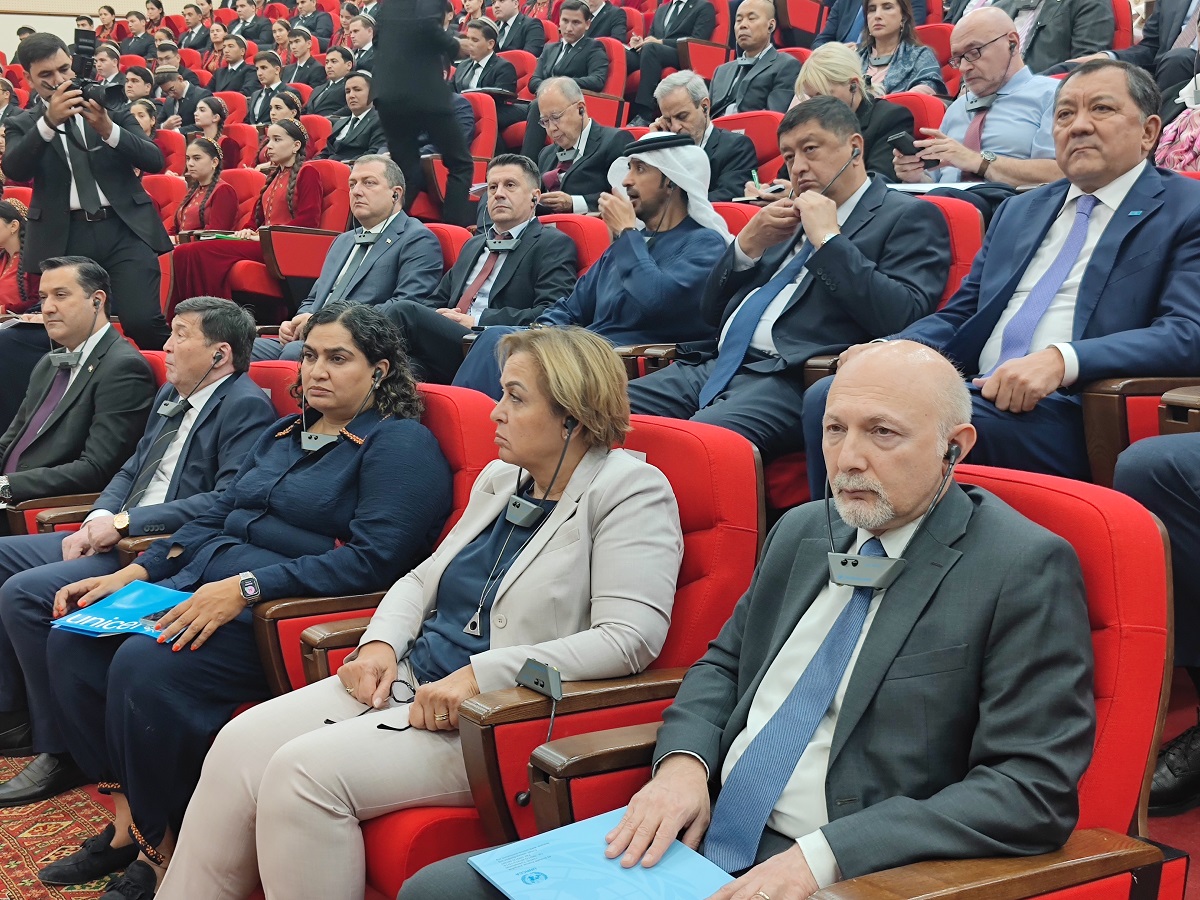
Imnadze noted that the theme of the 80th session of the General Assembly—"Better Together: 80 Years and Beyond for Peace, Development, and Human Rights"—is more relevant than ever, as the modern world is marred by conflicts, climate challenges, and political crises.
The Head of UNRCCA praised the consolidated position of the Central Asian countries at the UN General Assembly. Despite their national priorities, all states emphasized their shared approaches to regional stability, multilateral cooperation, resilience to climate change, and the need to strengthen the UN.
"I would be remiss if I didn't mention that the Central Asian states are leaders in initiatives related to water resources, glaciers, the mountain agenda, green energy, connectivity, poverty eradication, education, women, and youth," Imnadze noted. Furthermore, all five states emphasized that the stability and socioeconomic development of Afghanistan are crucial to the security and development of Central Asia.
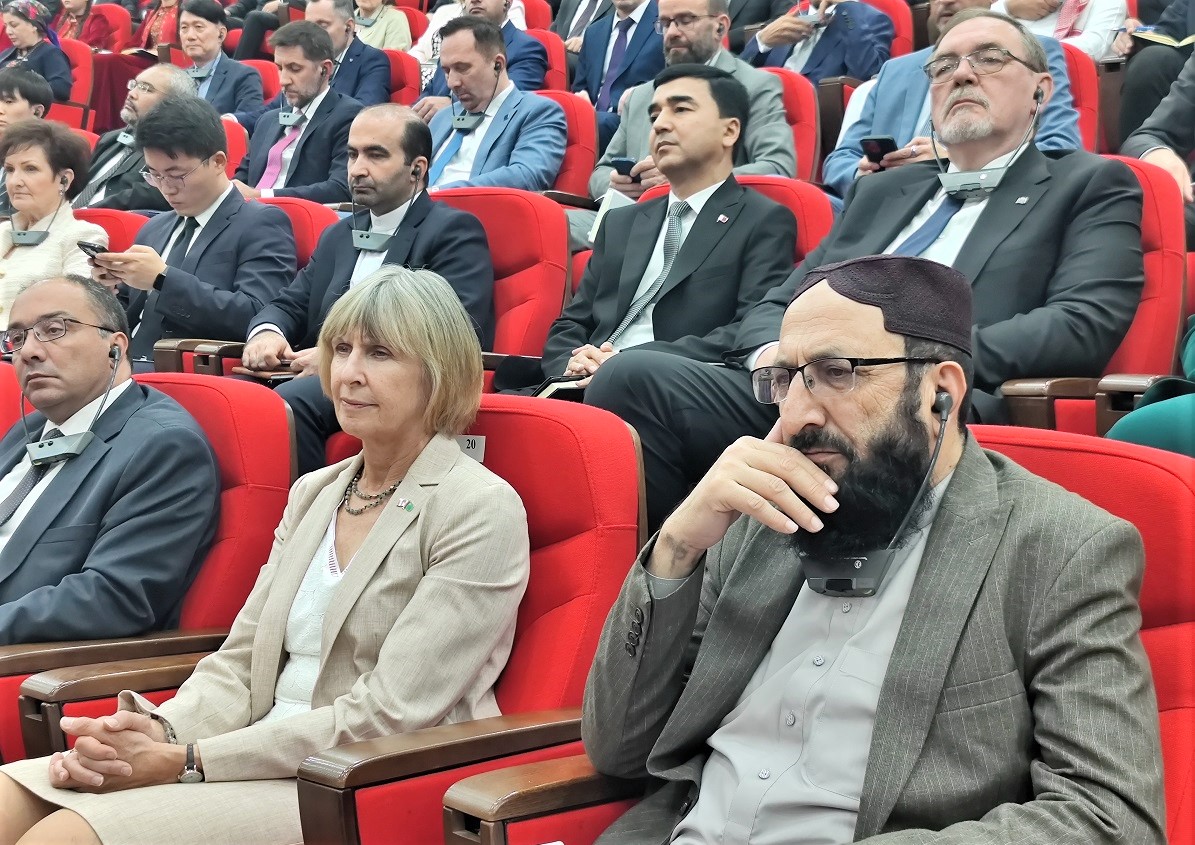
The UN Secretary-General's Special Representative specifically highlighted Turkmenistan's initiatives that are directly related to the UNRCCA mandate. For example, the idea of including a new agenda item for the UN General Assembly entitled "Neutrality for Peace and Security" will allow for a discussion of the key role of positive neutrality in maintaining international peace and sustainable development.
The High-Level International Forum dedicated to the 30th Anniversary of Turkmenistan's Permanent Neutrality, which will take place in December, could serve as a starting point for two other important initiatives: The World Summit on a Culture of Peace and Trust and the International Forum "Central Asia – a Space of Peaceful Coexistence."
Kakha Imnadze also noted the strategic importance of initiatives in transport, digital, and energy connectivity, which "form an inextricable link between regional security, stability, and development." In this context, the Global Platform for Digital Integration and the Caspian Environment Forum in 2026 are fully aligned with UN objectives.
The head of UNRCCA emphasized his pleasure at seeing Turkmenistan actively utilize the UN platform and tools: "We are here to work with you and accompany you on your path to improving the lives of your people, to peace, development, and human rights for all."
Following the conference, Narine Sahakyan, Resident Representative of the United Nations Development Programme (UNDP), praised Turkmenistan's continued commitment to the principles of neutrality, mutual respect, and dialogue, calling them fundamental elements of international cooperation. She emphasized that these principles are fully consistent with UNDP's mandate to support countries in finding comprehensive solutions to strengthen peace and sustainable development.
Narine Sahakyan noted that long-term stability directly depends on resilient infrastructure, reliable energy, and efficient transport systems. In this regard, UNDP highlighted Turkmenistan's initiatives in sustainable transport, energy connectivity, and digital integration, which are closely aligned with UNDP's priorities for a green transition and digital transformation.
As the largest implementer of climate action in the UN system, UNDP confirmed its commitment to supporting Turkmenistan's initiatives in the areas of sustainable energy and desertification prevention.
Key areas of cooperation included support for the proposed Regional Centre to Combat Desertification for Central Asia, facilitation of the establishment of the Regional Climate Technology Centre for Central Asia, and assistance in preparing Enhanced Nationally Determined Contributions (NDC 3.0) within the Climate Promise program to accelerate the transition to a green economy.
Furthermore, the UNDP representative reaffirmed its support to Turkmenistan in resolving the Aral Sea crisis, emphasizing that effective and sustainable management of transboundary water resources is the cornerstone of regional stability and food security.
"Turkmenistan's priorities, outlined by the General Assembly, represent a timely and comprehensive plan of action for the international community," she stated.
In conclusion, the UNDP representative noted that these global ambitions are being realized in Ashgabat through the development of a new UN System Cooperation Framework and Country Programming Documents (CPDs) for UNDP, UNICEF, and UNFPA. This ensures the alignment of joint efforts with the national vision for sustainable development and guarantees tangible progress for the citizens of Turkmenistan.
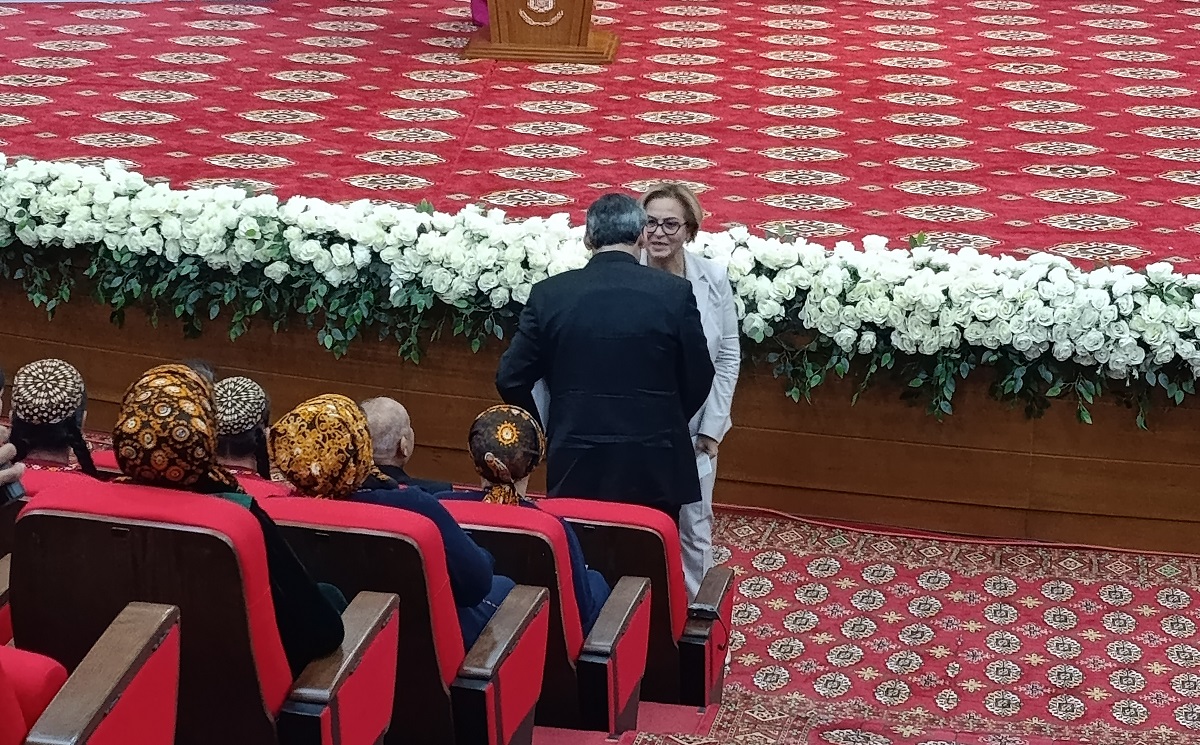
A logical continuation of this theme was the presentation by Jalpa Ratna, Representative of the United Nations Children's Fund (UNICEF) in Turkmenistan. She confirmed that Turkmenistan's social and humanitarian initiatives, including a focus on education and health, are an integral part of the global agenda and a critical component of the new UN Cooperation Framework.
Central Asia: Unity in Strategic Goals
A key part of the conference was the participation of the heads of diplomatic missions of Central Asian states and Azerbaijan. Their speeches demonstrated consolidated regional support for Ashgabat's initiatives.
Ambassadors Extraordinary and Plenipotentiary – Gismet Gozalov (Azerbaijan), Nurlan Nogayev (Kazakhstan), Azizbek Madmarov (Kyrgyzstan), Vafo Niyatbekzoda (Tajikistan), and Ravshanbek Alimov (Uzbekistan) – emphasized that Turkmenistan's priorities at the 80th session of the UN General Assembly reflect the common interests of the entire region.
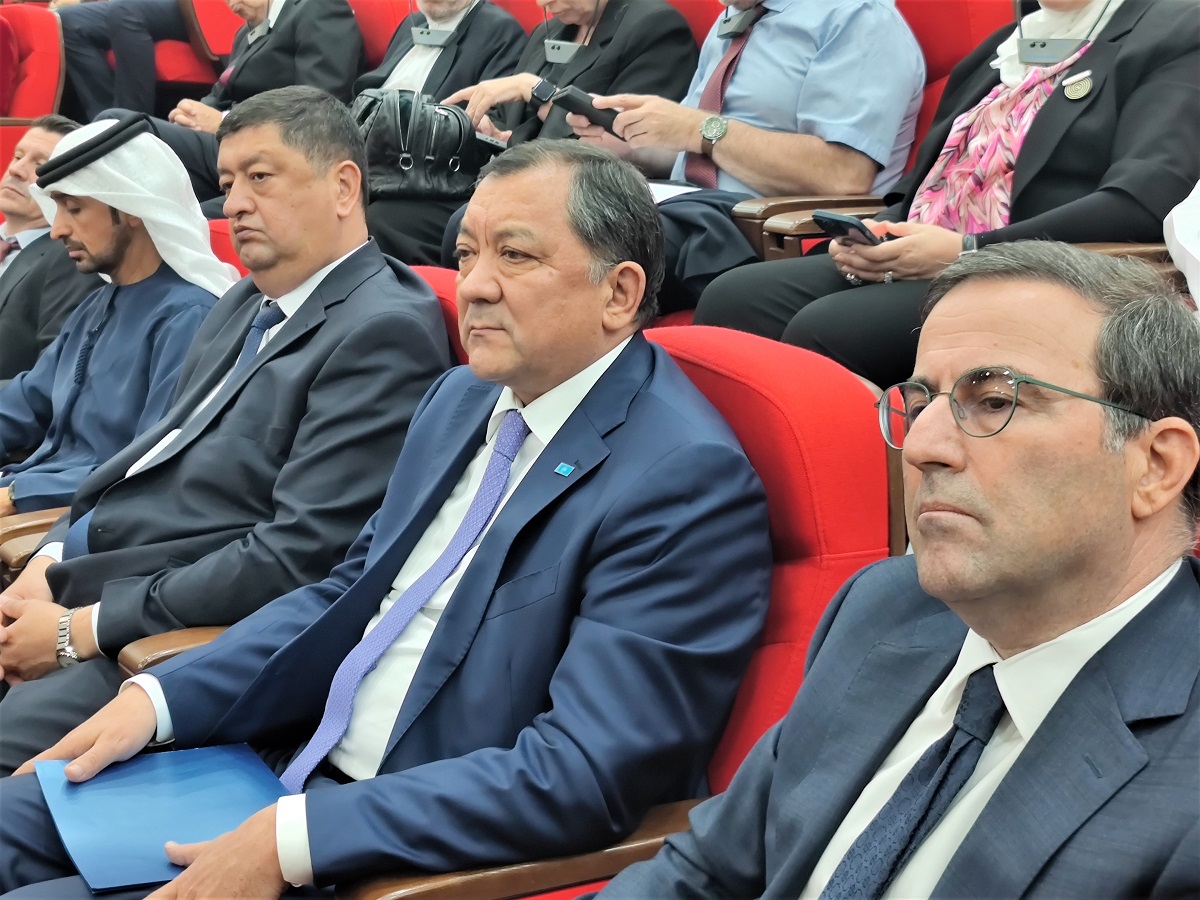
Particular emphasis was placed on developing transport, energy, and environmental cooperation in the Caspian Basin and Central Asia. Participants confirmed that Turkmenistan's regional initiatives (such as the Caspian Environmental Forum), strengthened by the UN platform, serve as a powerful factor in economic stability and peaceful coexistence.
Proactive Contribution to Global Stability
The conference demonstrated a high degree of synchronicity between Turkmenistan and its partners in advancing global and regional interests.
In summary, the country's foreign policy, based on the principles of permanent neutrality, is proactive and systemic. It is aimed at developing specific resolutions and mechanisms that not only serve national interests but also make a tangible, strategic contribution to peace, stability, and sustainable development at the global level.
Bekdurdy AMANSARYEV,
Center for Strategic Studies, Institute of International Relations, Ministry of Foreign Affairs of Turkmenistan




